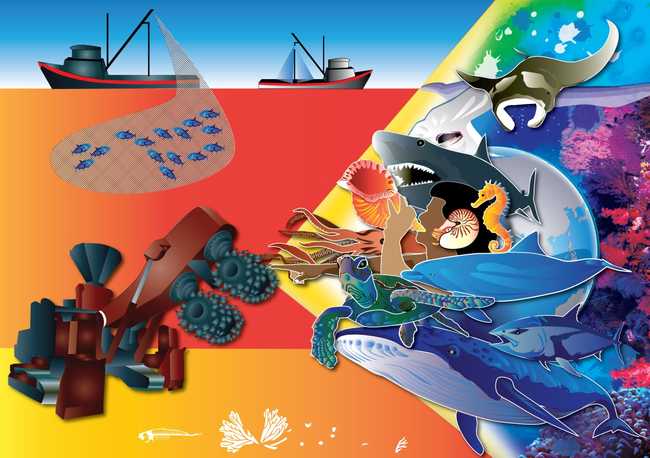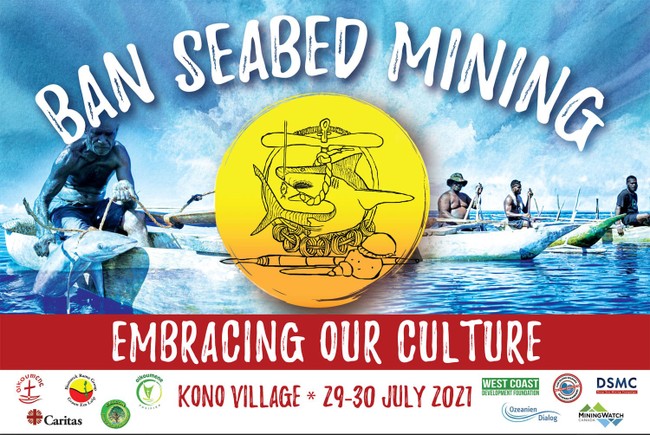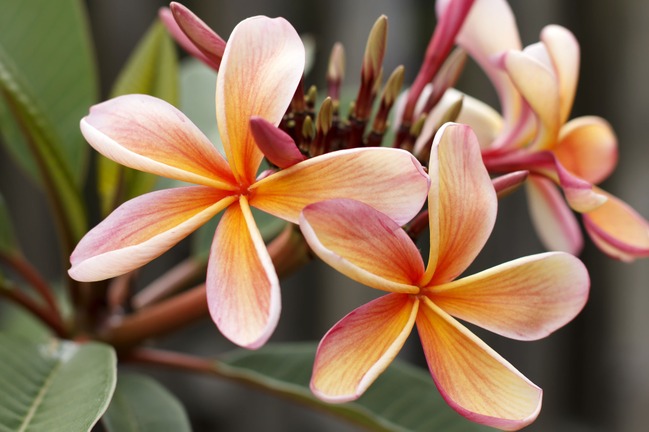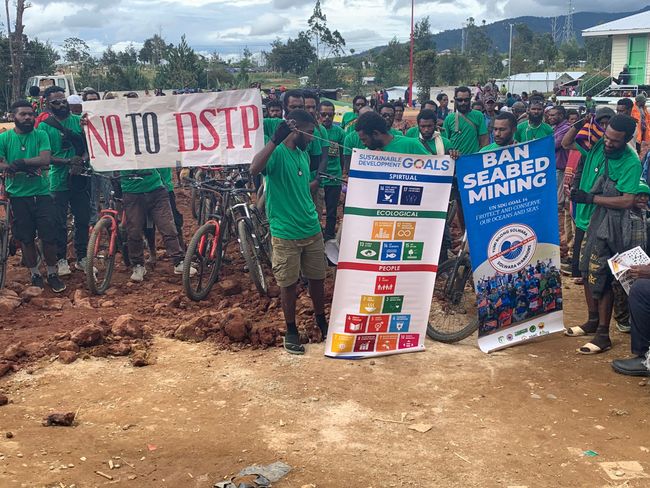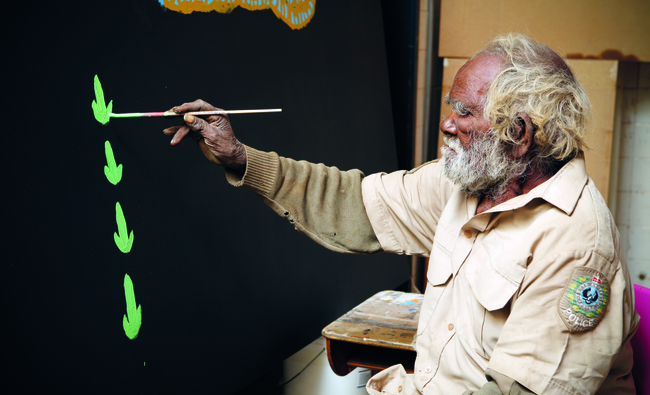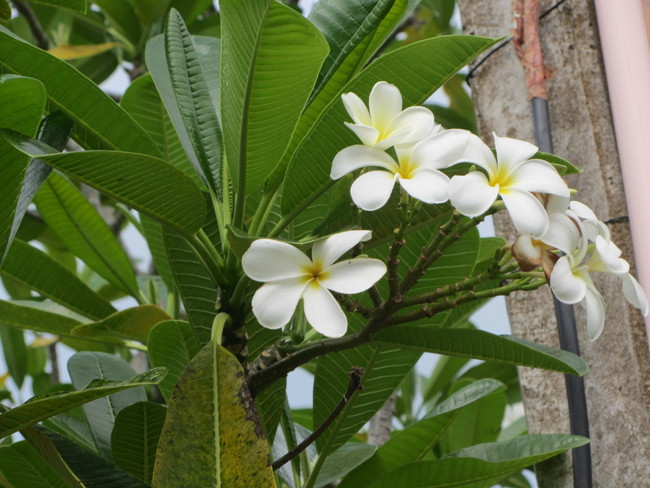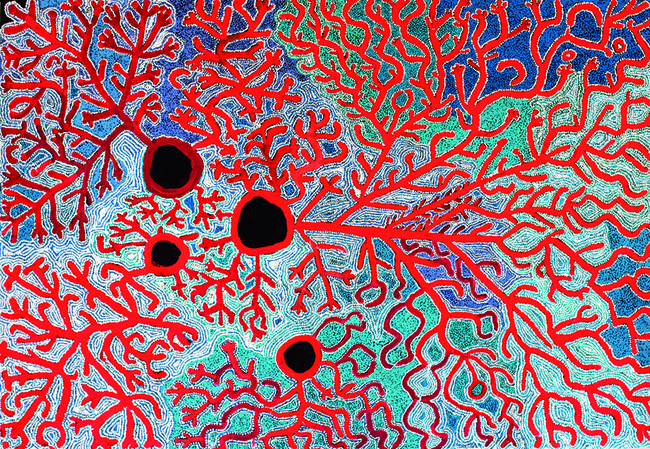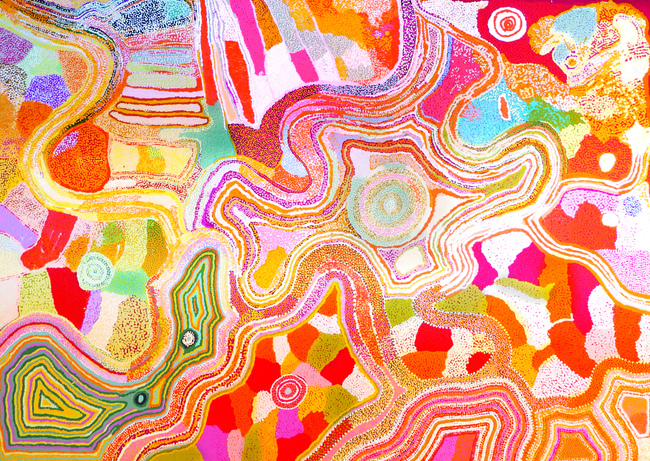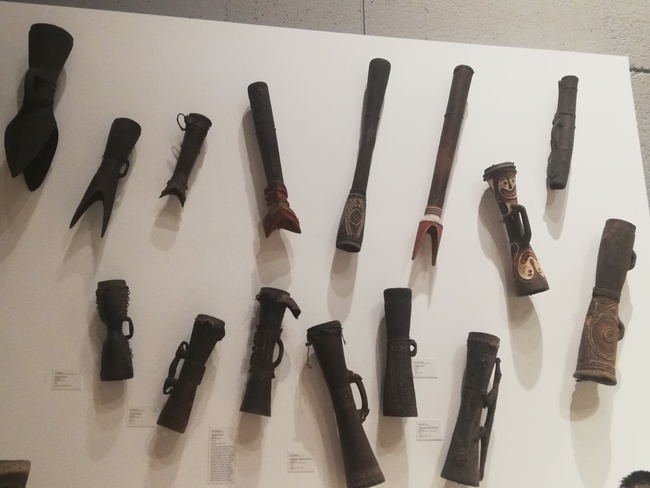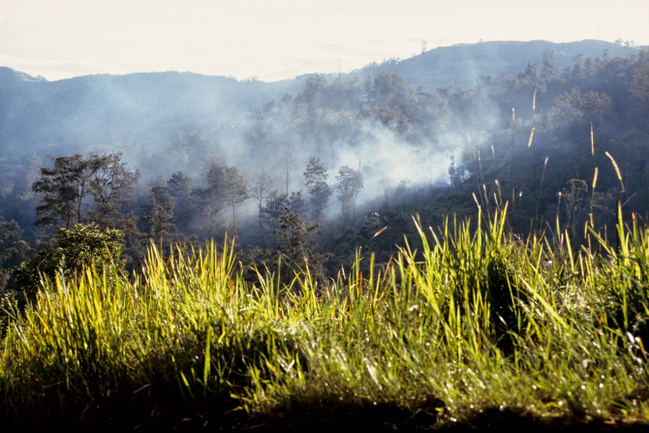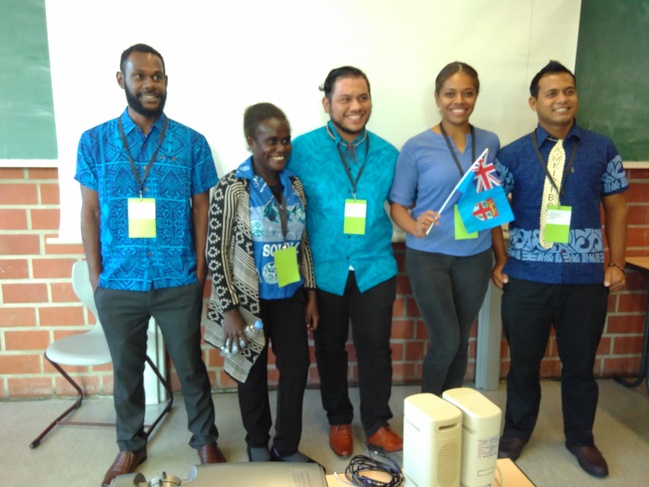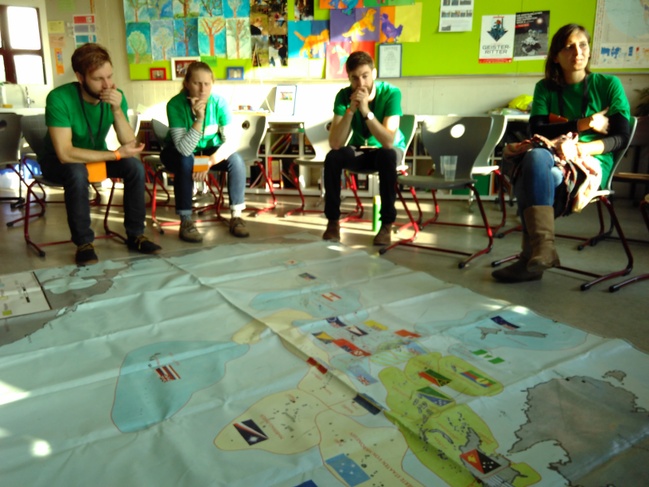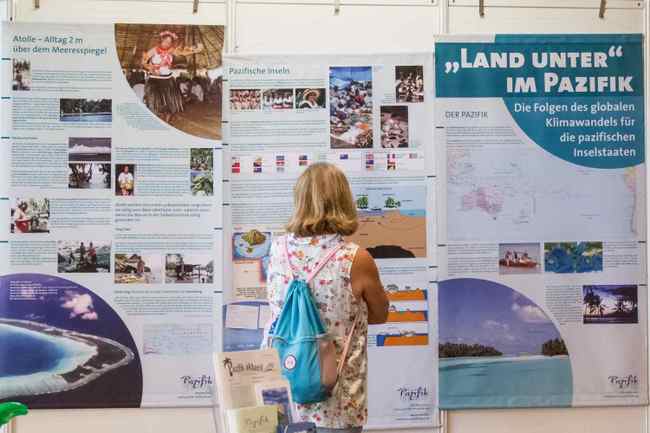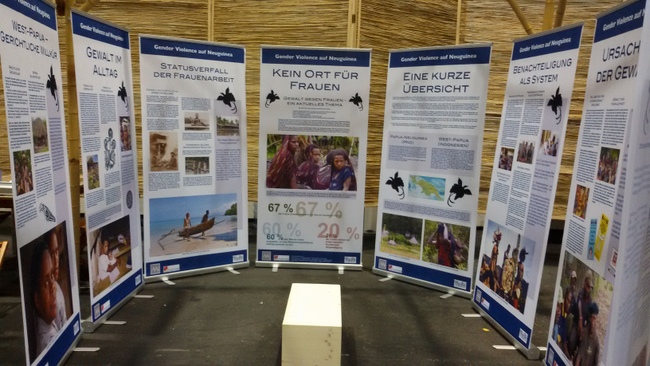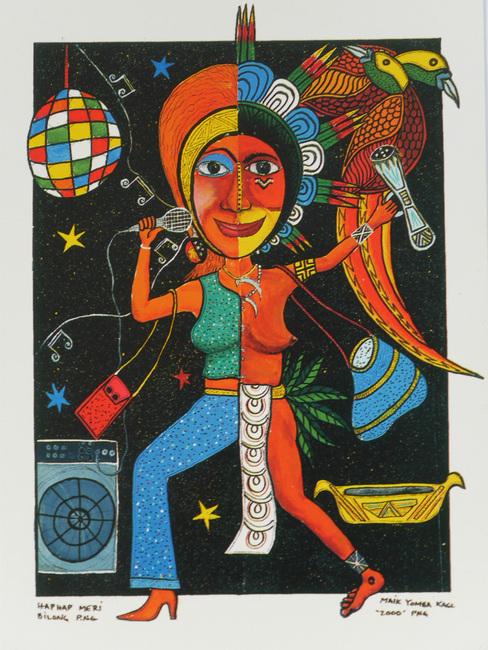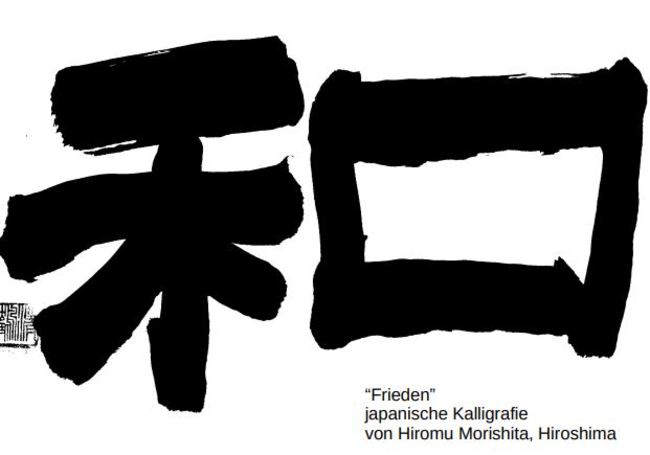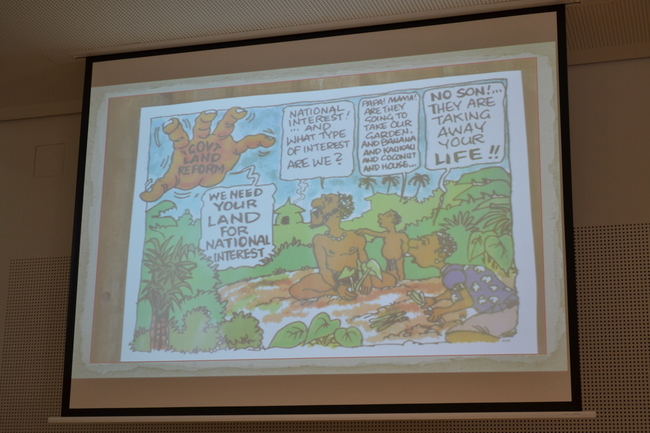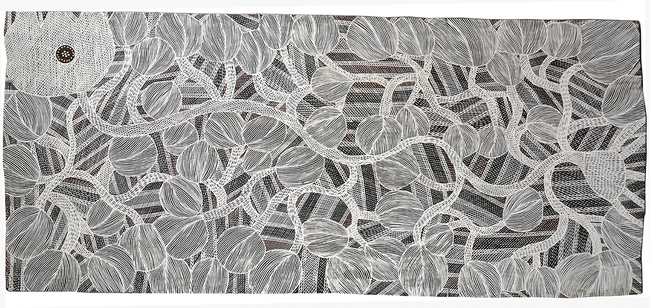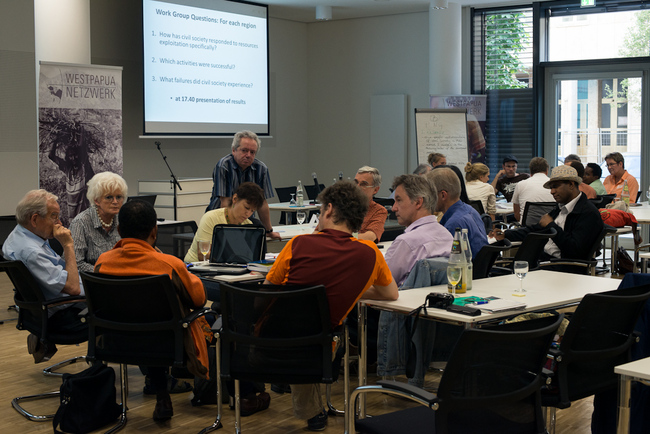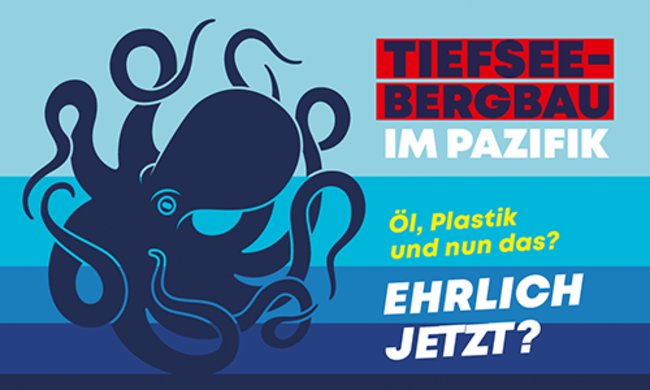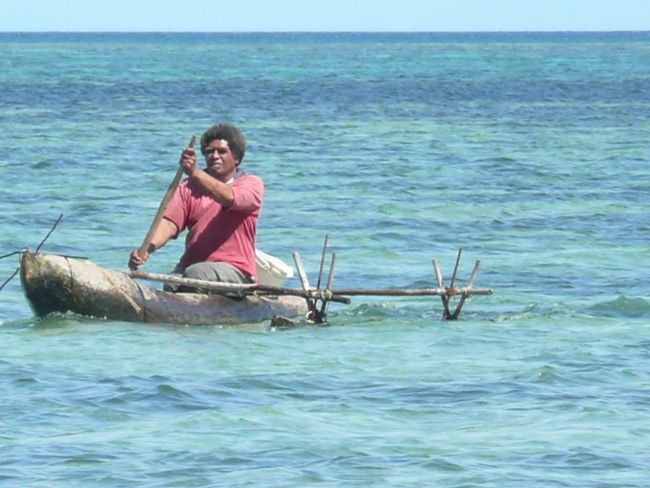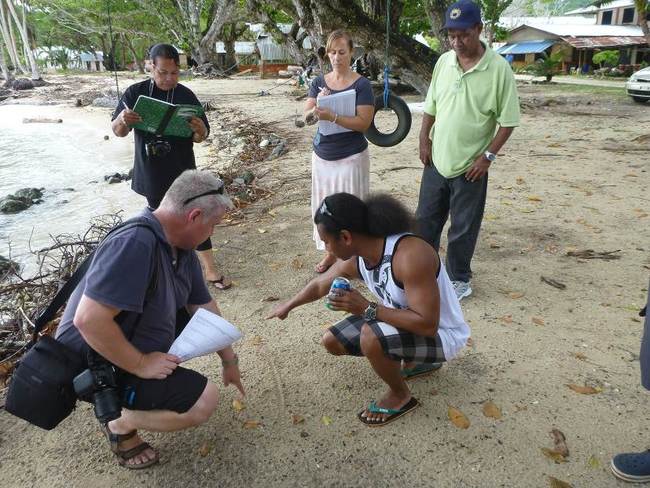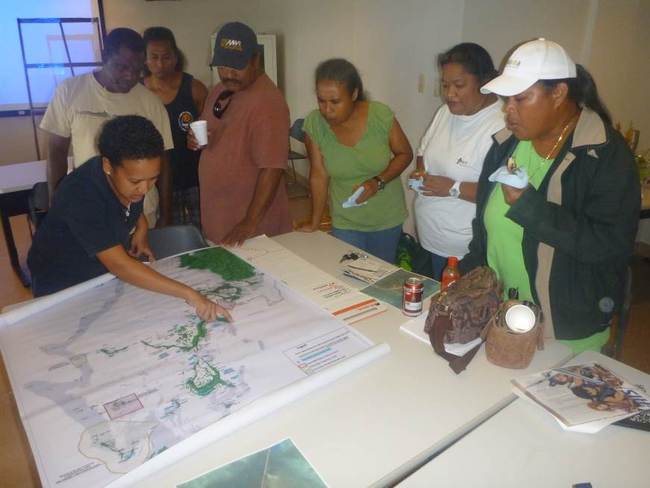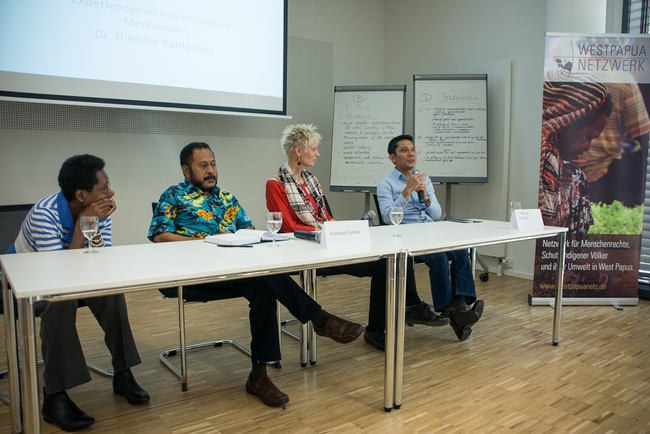Nuclear Free and Independent Pacific Day
01.03.2015: 1. März 1954: Bravo-Bombe auf Bikini gezündet
Am 1. März ist der "Nuclear Free and Independent Pacific Day". Am 1. März jährt sich die Zündung der größten Wasserstoffbombe "Bravo", die die USA jemals zur Explosion brachten, und die 1954 eine weitreichende radioaktive Verseuchung umliegender bewohnter Inseln sowie die Pulverisierung einiger Inseln des (evakuierten) Bikini-Atolls zur Folge hatte.
Die Auswirkungen der über 300 Atombombenversuche im Pazifik sind noch immer nicht vorüber, viele Menschen leiden bis heute an den gesundheitlichen Spätfolgen. Inseln, die einst Heimat waren, bleiben unbewohnbar und was in Zukunft aus dem im Untergrund hochgradig verseuchten Moruroa-Atoll oder aus dem Atommüll unter der Betondecke des Runit-Kraters noch an hochgiftigen Stoffen in den Pazifischen Ozean entweichen wird, das weiß heute niemand.
Indigenous Peoples' Rights | Peace Movement Aotearoa
Nuclear Free and Independent Pacific Day
Nuclear Free and Independent Pacific Day ('Bikini' Day), 1 March, marks the anniversary of the US 'Bravo' nuclear bomb detonation at Bikini Atoll [*] in 1954. The explosion gouged out a crater more than 200 feet deep and a mile across, melting huge quantities of coral which were sucked up into the atmosphere together with vast volumes of seawater. The resulting fallout caused widespread contamination in the Pacific.
Powdery particles of radioactive fallout landed on the island of Rongelap (100 miles away) to a depth of one and a half inches in places, and radioactive mist appeared on Utirik (300 miles away). Radiation levels in the inhabited atolls of Rongerik, Ujelang and Likiep also rose dramatically. The US navy did not send ships to evacuate the people of Rongelap and Utirik until three days after the explosion. The people in the Marshall Islands, and elsewhere in the Pacific, were used as human guinea pigs in an obscene racist experiment to 'progress' the insane pursuit of nuclear weapons supremacy.
Nuclear Free and Independent Pacific Day is a day to remember that the arrogant colonialist mindset which allowed, indeed encouraged, the horror mentioned above continues today - the Pacific remains neither nuclear free nor independent.
It is a day to think about the many faces of colonisation - physical, cultural, spiritual, economic, political, nuclear, military - past and present; the issues of independence, self-determination and sovereignty here in Aotearoa New Zealand and the other colonised countries of the Pacific; and the ability of Pacific peoples to stop further nuclearisation, militarisation and economic globalisation of our region.
It is a day to acknowledge and remember those who have suffered and died in the struggle for independence around the Pacific; those who have opposed colonisation in its many forms and paid for their opposition with their health and life; and those who have suffered and died as a result of the nuclear weapons states' use of the Pacific for nuclear experimentation, uranium mining, nuclear weapons testing and nuclear waste dumping.
It is a day to celebrate the strength and endurance of indigenous Pacific peoples who have maintained and taken back control of their lives, languages and lands to ensure the ways of living and being which were handed down from their ancestors are passed on to future generations.
It is the day to pledge your support to continue the struggle for a nuclear free and independent Pacific, as the theme of the 8th Nuclear Free and Independent Pacific Conference said: No te parau tia, no te parau mau, no te tiamaraa, e tu, e tu - For justice, for truth and for independence, wake up, stand up !
